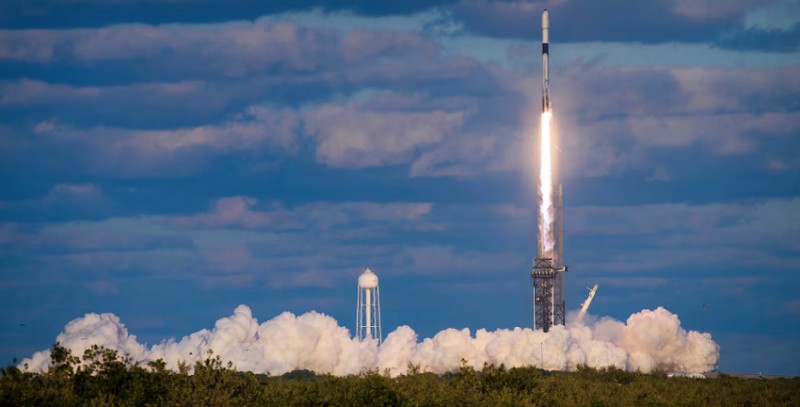
In a move to bolster its surveillance capabilities amid escalating tensions with North Korea, South Korea successfully launched its second military spy satellite. This launch comes shortly after North Korea announced its intentions to deploy multiple reconnaissance satellites throughout the year.
Last year, both Koreas embarked on their satellite programs, with North Korea launching its satellite in November and South Korea following suit in December. The objectives behind these initiatives were clear: to enhance monitoring capabilities over each other and to strengthen missile attack capabilities.
The latest satellite was launched from the Kennedy Space Center in Florida on Sunday evening local time, corresponding to Monday morning in Seoul. The South Korean Defense Ministry confirmed the successful separation of the satellite from the rocket and stated that it will now undergo testing to ensure proper functionality through communication with a ground station overseas.
Under an agreement with SpaceX, South Korea plans to deploy five spy satellites by 2025. Notably, South Korea achieved a milestone in 2022 by becoming the 10th nation globally to independently launch a satellite using its own technology. However, experts suggest that utilizing SpaceX rockets for satellite launches is more cost-effective for South Korea, which still needs further launches to validate the reliability of its rockets.
Meanwhile, North Korea has been pursuing its own space-based surveillance network to counter perceived military threats from the United States and South Korea. Despite facing two launch failures in 2023, North Korea successfully placed its Malligyong-1 spy satellite into orbit in November of that year. North Korean authorities claim that the satellite has transmitted imagery of key sites in the U.S. and South Korea, including the White House and Pentagon. However, foreign experts remain skeptical about the satellite's actual capabilities to provide militarily significant imagery.
Recent statements from North Korean officials indicate the country's intention to launch several more reconnaissance satellites in the current year. North Korean leader Kim Jong Un previously pledged to deploy three additional military spy satellites in 2024 during a crucial political conference in December.
It's important to note that the United Nations prohibits North Korea from conducting satellite launches, viewing them as veiled tests of long-range missile technology. The November satellite launch by North Korea further escalated tensions on the Korean Peninsula, prompting both Koreas to take actions breaching their 2018 agreement to de-escalate military tensions.
North Korea's persistent missile tests in recent years have led to increased military drills by the U.S. and South Korea in response. Analysts suggest that North Korea sees expanding its weapons arsenals as a means to strengthen its negotiating position in future diplomatic engagements with the U.S.
China's AI Influence Tactics in Global Elections: What Microsoft Warns
North Korea Confirms Test of New Hypersonic Missile: Details Inside
North Korea Advances Missile Technology with Hypersonic Test